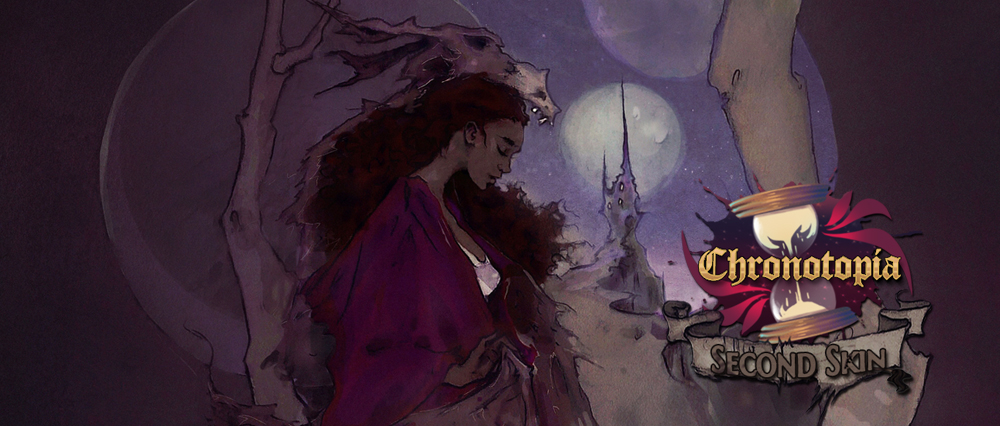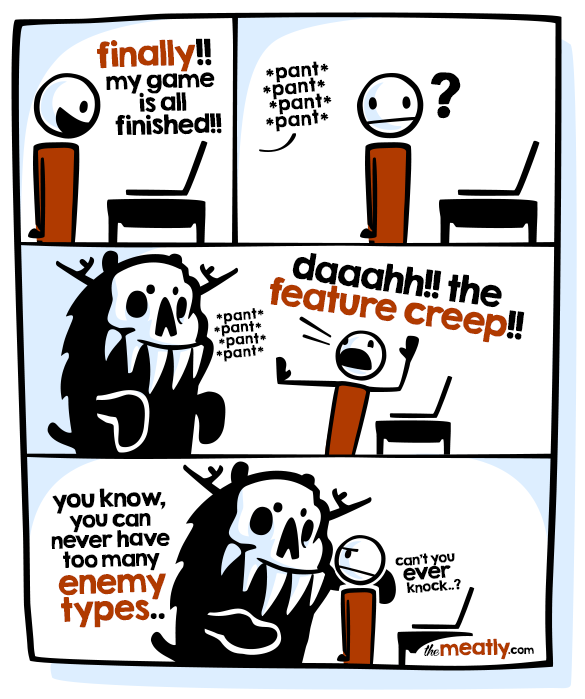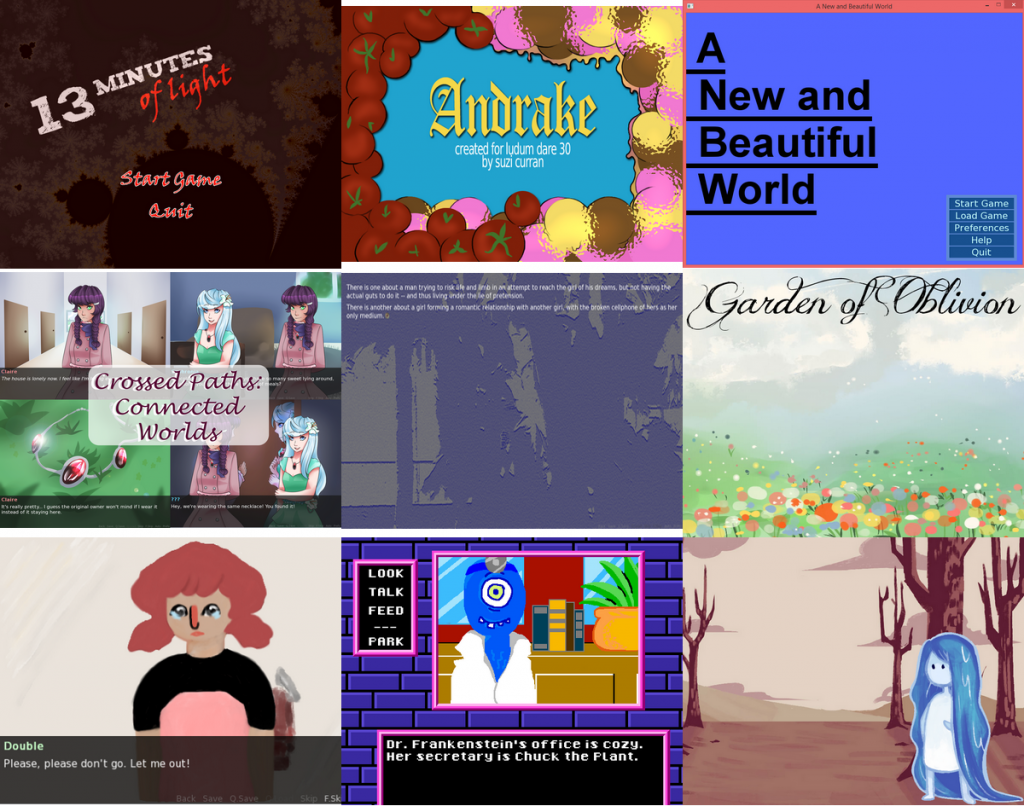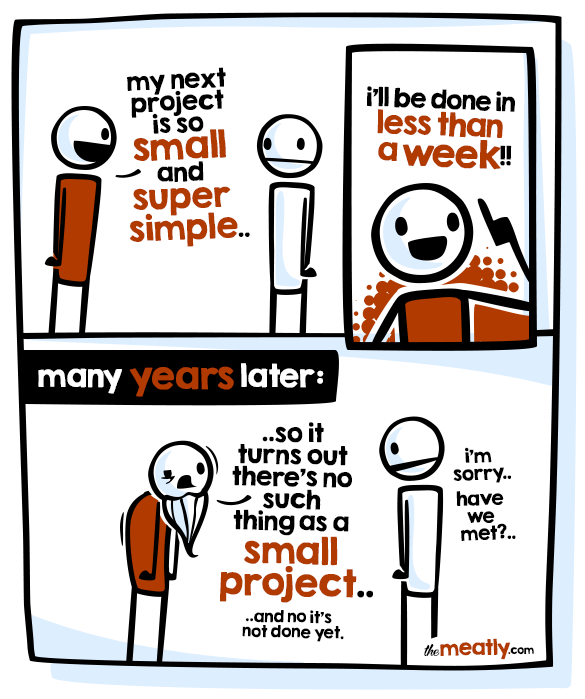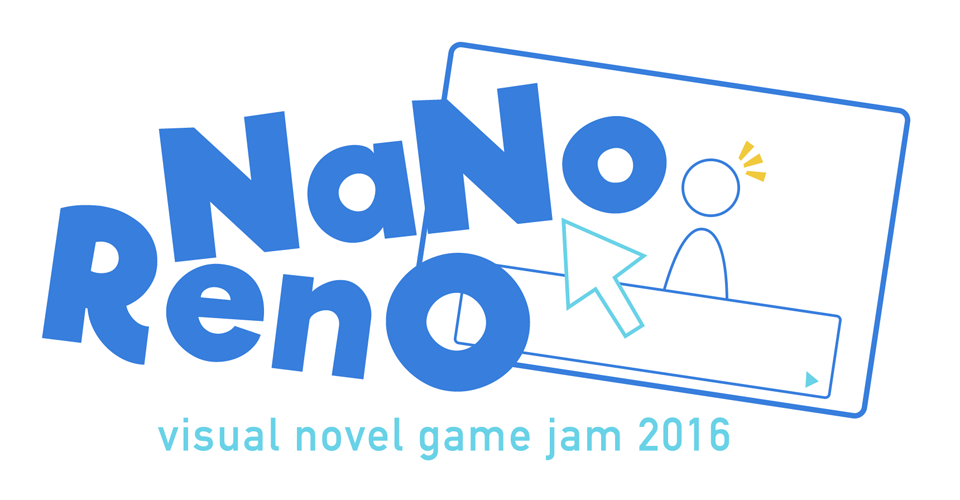A few years ago, I tried to make articles about how to create visual novel, for those who would need advices. In the meantime, many things changed: not only did I gain experience but the market itself evolved a lot. It became, probably not more difficult, but way more disheartening for newcomers. So, with several releases under my belt, I want to take the pen again to make some kind of guide, one that I hope will be complete and up to date. But before that, let’s start with a preliminary step that tend to be forgotten.
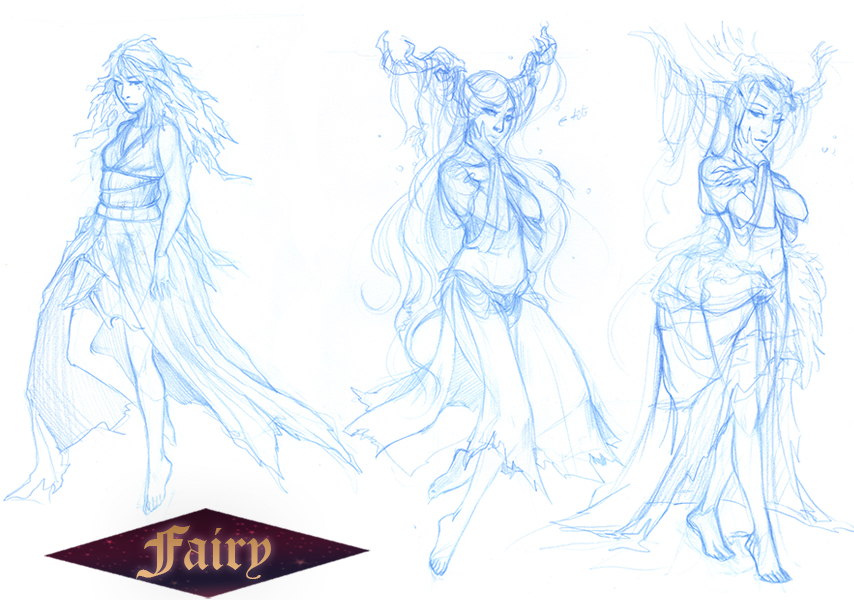
While I’m at it, here are some news about Chronotopia: Anako is making researches for the fairy character ~
That’s decided, you want to make your own visual novel. After reading some, you feel attracted to the concept and you’re probably very eager to make a reality of all the ideas that have been in your head for a while. You heard that it wasn’t very complicated (since you don’t need to be skilled in coding), much easier than any other type of game in fact, and given the success of some recent titles, you’re convinced that you could make money too, one day.
Some common preconceptions
Before getting ahead of yourself, it might be interesting to clear up some mistakes. To begin with, a visual novel is not necessarily that easy to make! Of course, by using tools like RenPy or TyranoBuilder, you’re making your life easier when it comes to programming but it’s, in fact, misleading. Indeed, the characteristic of visual novel is that the experience is terribly static, quite the reverse of any other type of game where the player will be able to move as he wishes, explore and find solutions to problems (puzzles). Thanks to this lack of gameplay, visual novel are able to focus on developing a story but, in exchange, it can hurt the immersion. Unless you perceive illustrations as mere symbols to help the player to use his imagination, the developer is incited to multiply assets (sprites’ expressions, number of backgrounds, one-time illustrations, light animations) to break that aspect of the experience. And it’s precisely that multiplication of graphical assets that cost a lot and slow down the whole creation process. So, visual novel are offering an advantage when it comes to code (almost no bug to fix) but it doesn’t mean it’s easy to make for all that!
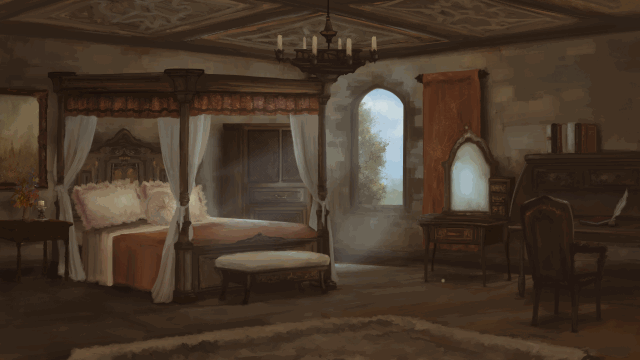
RenPy is “easy” for basic programming but, of course, more advanced effects will require more skills. Like for this background. See my latest tutorial to learn more ;)
Another myth is that you inevitably have to respect some “rules” about style and structure to attract the visual novel audience. If I had to take a wild guess, writing a romance story between high schoolers in a manga style and with sex scenes added. Don’t let yourself be bogged down! After all, it’s only by doing what you like that you’re going to get motivated, and you’ll need that motivation. Don’t hesitate to break the rules because the medium can only grow up that way: if all creators are copying the same formula over and over, it’s going to inhibit their creativity and kill all possibilities of doing differently. So don’t be afraid to try new things!
Smoke and mirrors
Now that you know what you’re going into, you really want to start with the project of your dreams already. Unfortunately it’s a very bad idea. Since you’re new to game development, you necessarily lack the skills needed and, even if you’re well informed, only practice will make you progress. But, if you start with a big project (if it isn’t at the start, it will likely become big along the way), gaining experience will only make you want to redo everything from the beginning according to what you learned and add new things (we call that feature creep and it’s your biggest enemy) and you’ll never see the end of it. And I’m not even talking about responsibility or the issues that can arise inside a team yet. It’s in your interest to experiment on small projects to gain confidence in your work and skills until you feel ready. Some rather suicidal creators have made a Kickstarter campaign to fund their first game/the game of their dreams and had the misfortune of succeeding. You might think it’s a chance but their lack of experience lead to big organization issues that can turn the dream into a nightmare. For example, back in 2013, there was a campaign for Driftwood. They’re about to release a new version of the original demo because of artists change and they don’t even have enough money to produce the complete game. Spending 3 years of your life on a mere demo while juggling with a job (that game isn’t gonna fund itself) and your studies at the same time sounds quite alarming to me. You don’t want that. Some projects manage to go on but at what cost? I wouldn’t even dare to imagine the state of burnout the teams are in. If you’re still not convinced, I recommend you’d read a post by Auro-Cyanide, that you surely know at least by name for she’s a very talented and prolific artist in the visual novel community. And even she got caught in a project that was too big and she ended up wishing to get rid of it.
All of this to say that if you’re really eager to work on it, keep that dream project of yours in a closet until you get more experience. The delay in dealing with it can only makes it better (you’ll have new ideas along the way) and it’ll allow you to progress on a personal level. It might sound stupid but humans sometimes need simple rewards. Getting stuck on the same thing for ages is depressing and the mere fact that you’re releasing several short projects can only boost your motivation…or maybe reveal that you’re not fit for game development. If you have to realize you were wrong, better not do so after raking in thousands of dollars through Kickstarter, if you know what I mean.
Let’s jam!
You decided to be reasonable and follow the number one advice in the visual novel world: start small. However, you need an opportunity to improve. Gamejams are perfect for beginners because they establish a framework that supports creation.
Personally, I’d advise you to focus on one or two skills first and try out the experience, on your own or in a team, to get better. On your own, it will be personal challenge and the opportunity to master the process of creation from A to Z. In a team, it will be the opportunity to forge links with other developers and look deeper into the skills you’ve chosen. Each case will bring differents teachings:
- Being on your own is very rewarding on a personal level but it also allow you to see what your limits are and accept the fact you’ll likely need some help in a field. Individuals that are talented in writing, drawing, composing and programming at the same time are rare, so better not burry your head in the sand: if you’re willing to progress, you’ll need to work with other people at some point.
- Being in a team can be very frustrating, especially at the beginning and depending on the people you met, but it’ll precisely teach you how difficult it is to manage a team. And the combining of everyone’s skills will allow you to go further than you can do on your own, which is also rewarding in a completely different way.
The other benefit of a gamejam is that the result don’t lie. If you’re unable to finish a short project in limited time, you’ll be unable to finish a big project with a bigger team and higher stakes (if it’s a commercial project, for example). It doesn’t mean you should give up everything to go pick up strawberries in Tanzania, just that you’re not ready yet. You may have seen too big or neglected a specific aspect, the fact remains that it’s better to do a lot of gamejams until you feel you can handle managing your own team or this dream project of yours.
As an aside: Some years ago, I would have told you this advice only worked for artists and composers but, with the expansion of the visual novel market, writers and coders now are more and more sought after. It can be easily explained by the fact that, paradoxically, once a team gains enough experience, the team leader will spend all his time on managing it and overseeing the different projects in progress. Which means he won’t be able to do those tasks anymore and will likely end up delegating them. So, even if you’re a writer/coder in training, you still have your chances!
The missing step
Let’s say you followed those advices: you inquired about current visual novel makers and gamejams that would be adapted for narrative game (in short you registered to Lemmasoft and you’re following devs on Twitter) and you found teammates to do several collaborative visual novel. Those experiences allowed you to experiment and find yourself on the artistic level: now you know what you can and cannot do, what are your strengths and weaknesses, in short you’ve paradoxically improved way more than if you had chosen to start that big project straightaway.
In the past, I would have told you how to make the project and I would have skipped that step, however it is necessary. Because, at heart, it helps you learning to get useful. If you’re working on your own, without surprise, you need as many skills as possible, even if public domain assets really help. And if you’re thinking about making your own team, it lends you credibility: indeed, experienced artists are often distrustful of project leaders that have no experience because they don’t want their work to be thrown away after a few months. All the money in the world is not going to completely remove the need for reward I mentioned earlier.
Anyway, now that you published some short games, you feel ready to take the plunge. The real adventure starts here and you haven’t seen anything yet!
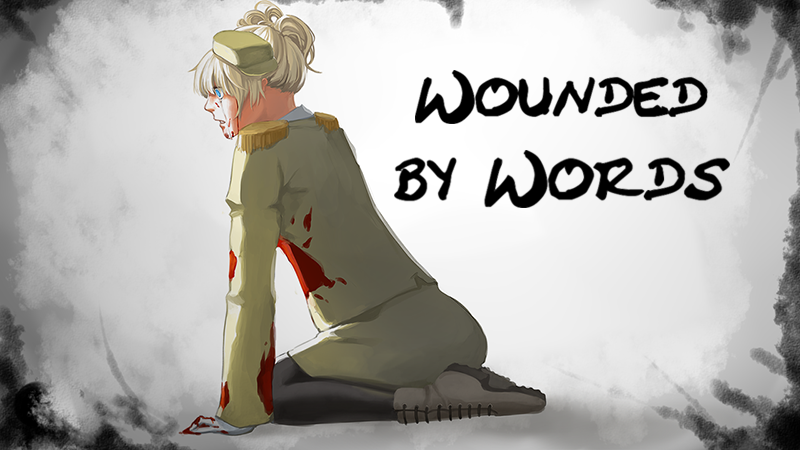
Meanwhile that guide is being made, I don’t know when, I remind you that Wounded by Words is now available on desktop and mobile for free~

